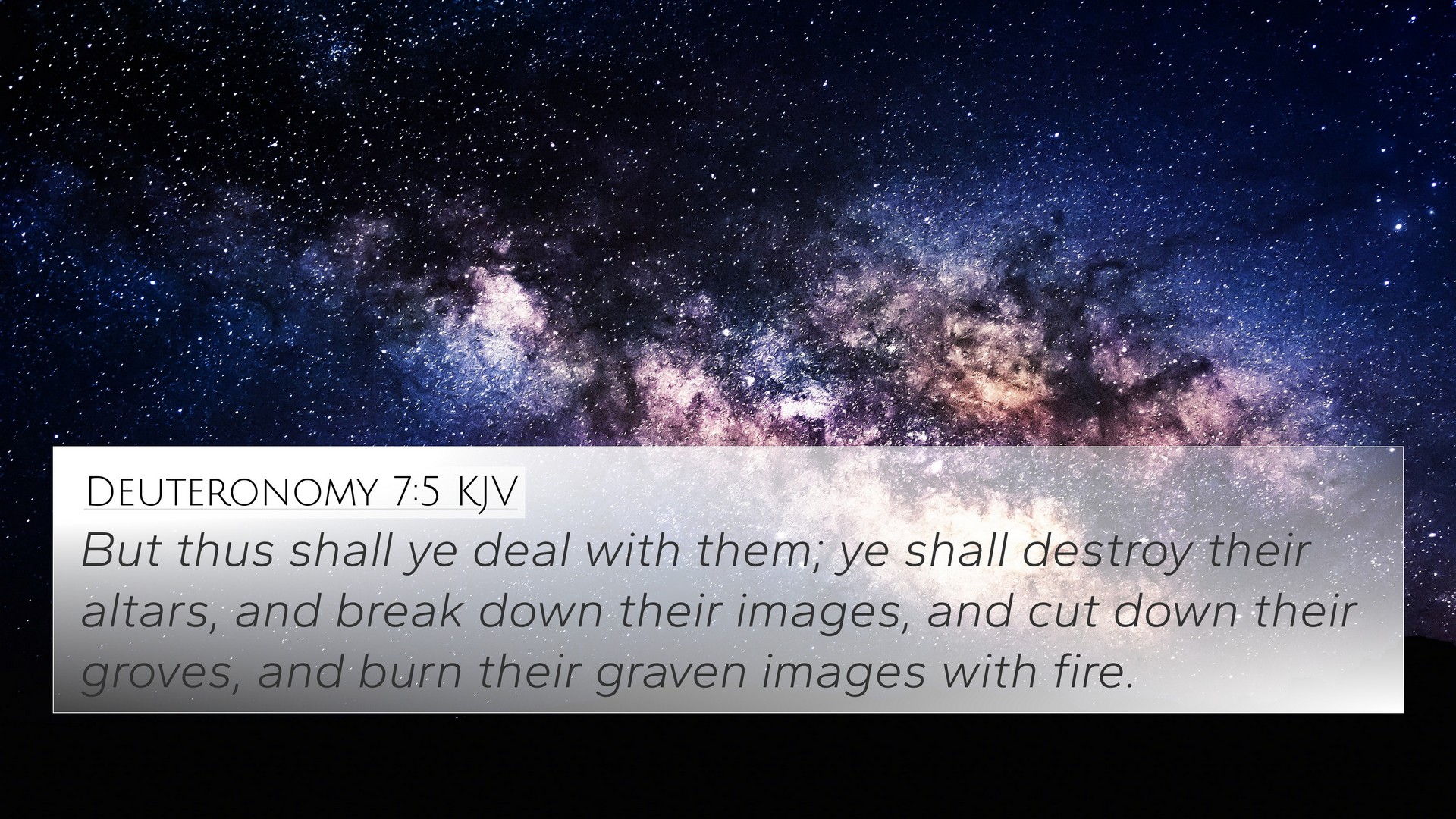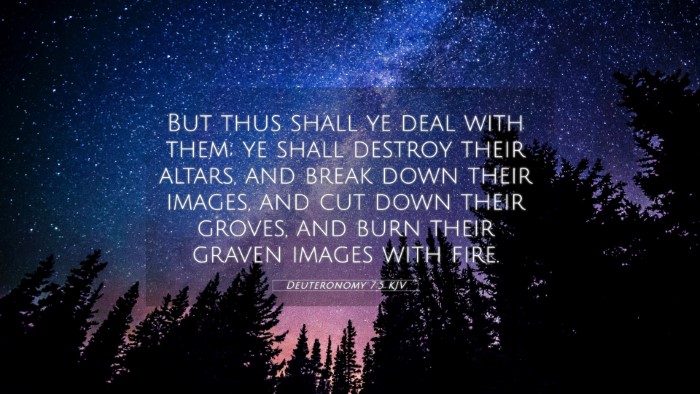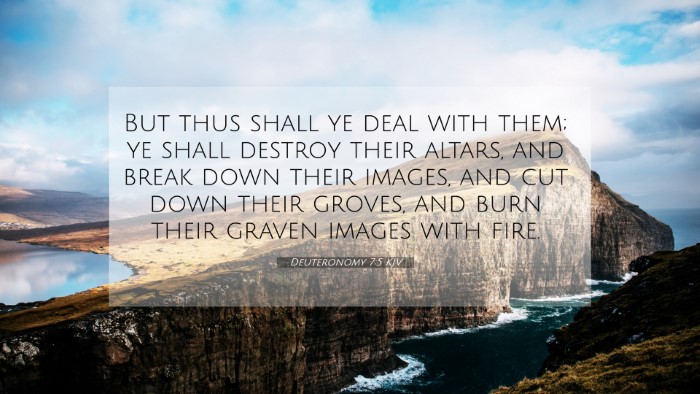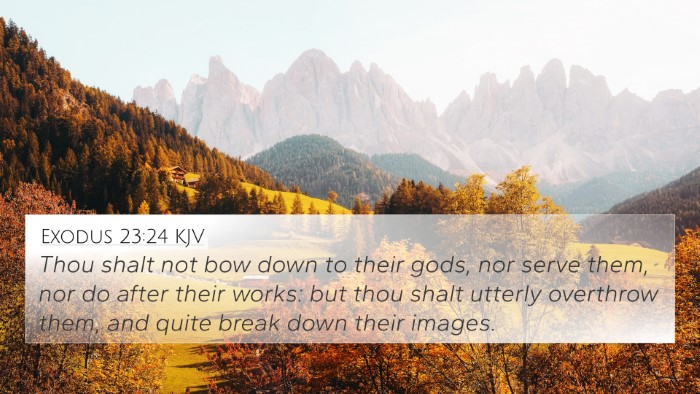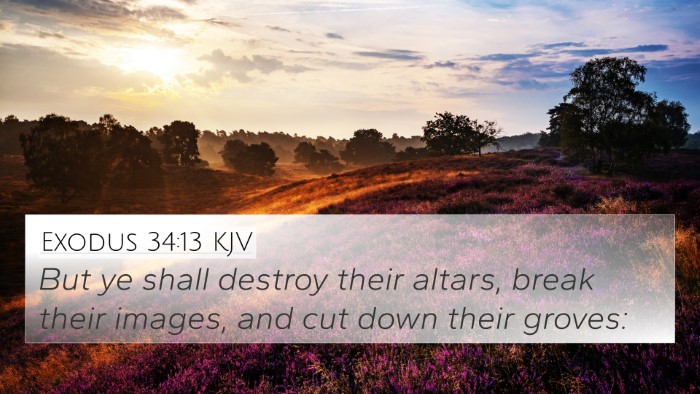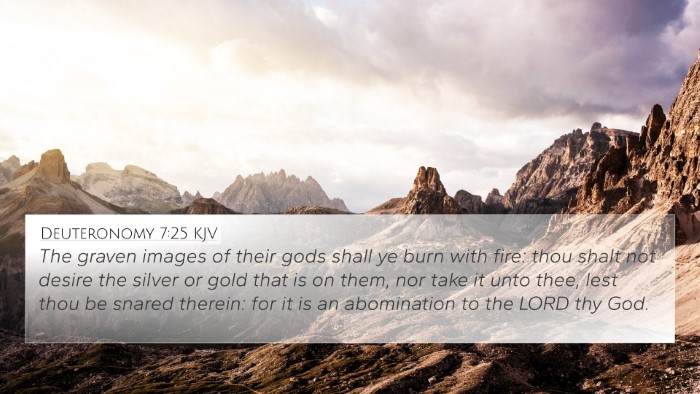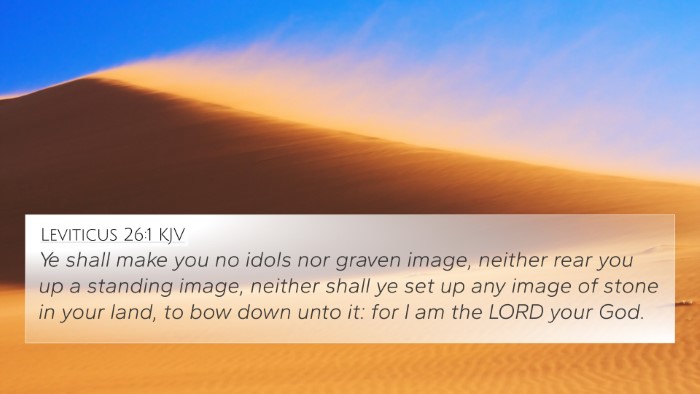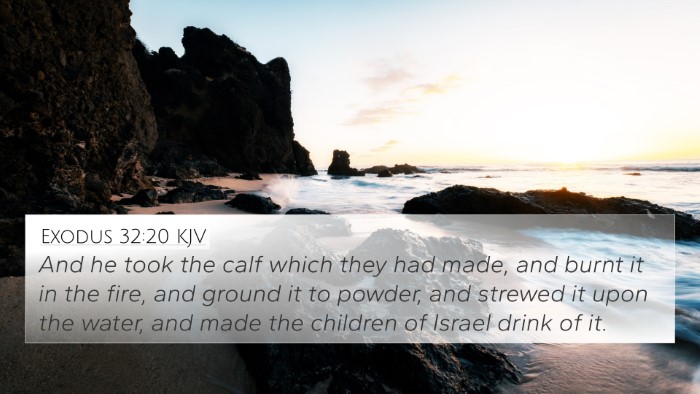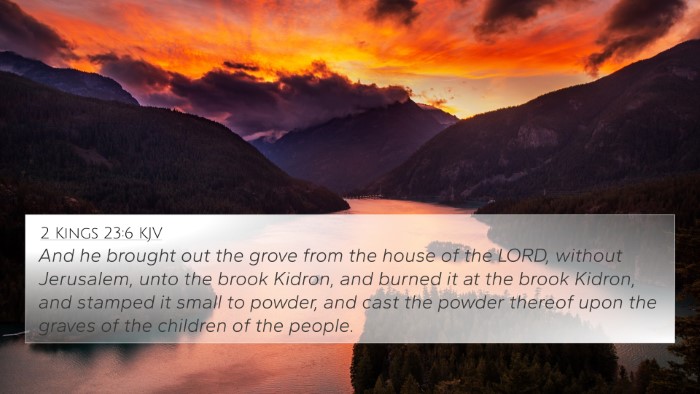Understanding Deuteronomy 7:5
Deuteronomy 7:5 reads:
"But thus shall ye deal with them; ye shall destroy their altars, and break down their images, and cut down their groves, and burn their graven images with fire."
This verse provides crucial instructions regarding how the Israelites were to handle the inhabitants of the Promised Land, emphasizing the necessity of eradicating idolatry. Below, we will explore the deeper meanings and connections of this verse through insights derived from various public domain commentaries, enriching our understanding of Scripture.
Insights from Commentaries
Matthew Henry's Commentary:
Henry emphasizes the command to destroy the altars and images of false gods as a means of maintaining the sanctity of Israel's worship of Yahweh.
He remarks that the presence of idolatry could easily lead the Israelites away from their covenant with God.
This highlights a principle of spiritual cleanliness and the importance of removing anything that would be an obstacle to true worship.
Albert Barnes' Notes on the Bible:
Barnes points out that the commanded destruction of the Canaanite religious symbols reflects God's absolute intolerance of idol worship.
He interprets this as God's desire for fidelity among His people.
The implication here is profound; it stresses that worship must be exclusively directed to God, devoid of any competing allegiances.
Adam Clarke's Commentary:
Clarke elaborates on the various forms of idolatry mentioned, noting how each represents different aspects of pagan worship that were prevalent in Canaan.
He warns against the dangers posed by mingling with those who practice such religions, asserting that compromise could dilute true worship.
Hence, the verse serves as a clear directive to uphold the purity of worship and the importance of spiritual separation.
Bible Cross-References
To enrich our comprehension of Deuteronomy 7:5, we can consider several pertinent cross-references that illustrate the themes of idolatry, worship, and divine commands in the context of Israel's journey:
- Exodus 23:24 - "Thou shalt not bow down to their gods, nor serve them, nor do after their works..." - A direct admonition against idolatry.
- Leviticus 26:1 - "Ye shall make you no idols nor graven image..." - Reinforces God's command to avoid idolatry.
- Deuteronomy 12:3 - "And ye shall overthrow their altars, and break their pillars..." - A parallel directive to destroy false places of worship.
- 1 Kings 14:15 - "For the Lord shall smite Israel, as a reed is shaken in the water, and he shall root up Israel out of this good land..." - Consequences of straying from true worship.
- Isaiah 44:9 - "They that make a graven image are all of them vanity..." - Highlights the futility of idolatrous practices.
- Matthew 6:24 - "No man can serve two masters..." - The New Testament reiteration of exclusivity in worship.
- Revelation 21:8 - "But the fearful, and unbelieving, and the abominable, and murderers, and whoremongers, and sorcerers, and idolaters..." - The ultimate judgment against idolaters in eschatology.
Thematic Connections
The message contained within Deuteronomy 7:5 transcends its immediate historical context, offering a compelling look at broader Biblical themes:
- Idolatry and Faithfulness: This verse serves as a reminder throughout Scripture that faithfulness to God is integral to covenant relationship.
- Public Worship vs. Private Altars: The removal of altars highlights the public nature of worship and the accountability of a community to uphold divine standards.
- Consequences of Compromise: Many Biblical narratives showcase the dangers faced by the Israelites when they failed to heed God's warnings against intermingling practices with idol worship.
Practical Application
Understanding Deuteronomy 7:5 allows us to discern practical applications in our lives today:
- Self-Examination: Identify and eliminate any 'idols' in our lives—anything that distracts from devotion to God.
- Community Worship: Encourage fidelity in worship practices within the community, emphasizing the importance of mutual accountability.
- Spiritual Discipline: Foster habits that lead to faithful worship and reject those that entice us toward distractions.
Conclusion
Deuteronomy 7:5 challenges believers to reflect on the significance of worshiping God alone and adhering to His commands, which remains a timeless message. The cross-references and thematic explorations reinforce the fundamental principle of loyalty to God amidst the distractions and errors of the world.
Through diligent study and cross-referencing Scripture, we can deepen our understanding of not only this verse but how it fits within the broader tapestry of God's revelation throughout the Bible.
